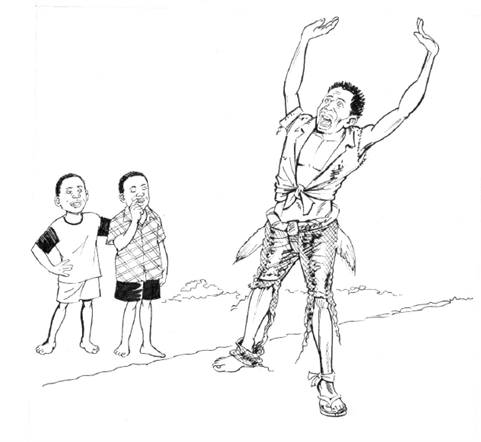Stigma and Discrimination
exp date isn't null, but text field is
Common myths and misconceptions about mental illness include:
- People with mental illness cannot be treated
- People with mental illness are dangerous and cannot be trusted
- People with mental illness do not recover
- Mental illness only happens to other people
- A mental illness is not a real illness
- It is the fault of the individual with mental illness as they are being punished by a higher being (God, ancestors) for doing wrong
- Mental illness is caused by witchcraft
- Mental illness is only caused by use of drugs and alcohol
All of these beliefs are false.

Misconceptions like these leads to stigma. Stigma against people with mental illness is the belief that they are inferior or dangerous. Discrimination refers to the actions of individuals and organisations that arise from stigma.
Discrimination against people with mental illness can take many forms:
- People with mental illness may be mistreated by family, community and even by health workers.
- People with mental illness may not be given equal opportunities in work and education and in access to health care.
- Decision makers do not prioritise mental illness. This can lead to underfunding of mental health services and increases the likelihood that people with mental illness will experience human rights abuses.
Stigma and discrimination can make people with mental illness feel isolated, lonely and misunderstood. This can exacerbate existing mental health problems and prevent the individual from interacting with their community and accessing the support they need.
Health workers must work towards dispelling the myths around mental illness in the community and within the hospital or clinic setting. This will help to reduce the stigma of mental illness and help people to recover.
The best way to reduce stigma about mental illness is for individuals and communities to meet with people with mental health problems. They will see that people with mental health problems are “just the same as them” in that they have families, friends and jobs. They will learn that, with correct treatment, people can recover from mental illness and lead happy and productive lives.
Mental Health Users and Carers Association (MEHUCA)
It is very important that the voices of people living with mental illness and their carers are heard. To ensure that this happens, the Mental Health Users and Carers Association (MEHUCA) was set up in Malawi in 2011.
The mission of the association is to enhance the welfare of all persons living with mental illness, intellectual disability and other mental health problems, and to enable them to assume their rightful role in society.
The objectives of MEHUCA include:
- To promote the human rights of persons with mental health problems in Malawi, and to work for equality of rights and opportunities for persons with mental health problems.
- To carry out awareness campaigns on the nature of mental health problems and availability of treatment, with the purpose of reducing stigmatising attitudes toward those living with mental health problems, and improving access to mental health care.
- To facilitate the full participation of people with mental health problems (users), and carers of people with mental health problems, in the design, formulation, implementation and evaluation of policies, programmes, and services for their needs, and to monitor, evaluate and review such services.